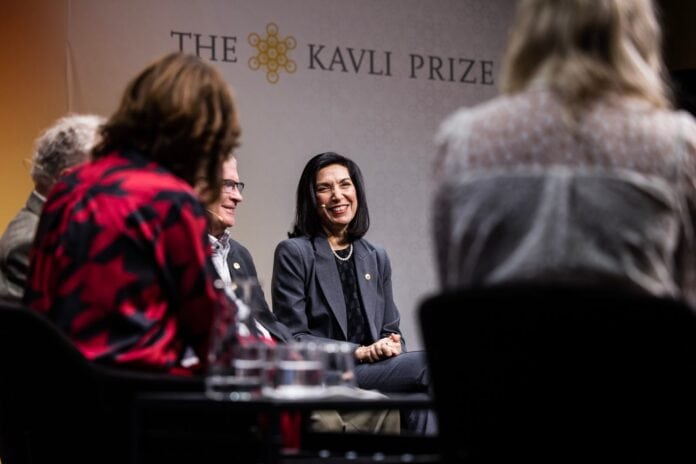Early in her career as a pediatrician, Huda Zoghbi was often the bearer of bad news.
She found it especially difficult to share diagnoses of Rett syndrome, a childhood neurological disorder that can lead to seizures, impaired motor function, loss of speech, and developmental delays.
At the time, the cause of Rett syndrome was unknown.
“Being with a parent and telling them ‘your child has a degenerative neurologic problem’ is the most devastating,” Zoghbi said in an interview with the Howard Hughes Medical Institute. “I said, ‘Well maybe if I went into the lab and learned how to do research, maybe I can at least help rather than just make a diagnosis, give the news, and walk away.’ So I decided, if I can find the genetic causes of these diseases, maybe we can do something about them.”
Zoghbi will visit the Fralin Biomedical Research Institute at VTC to discuss “Molecular and Neurobiological Studies in Rett Syndrome and Other MECP2 Disorders” on Thursday, May 1, during the final Maury Strauss Distinguished Public Lecture of the academic year.
In 1999, Zoghbi’s lab uncovered a genetic mutation responsible for Rett syndrome, which affects fewer than 50,000 people in the U.S. The breakthrough discovery linked a mutation of the methyl CpG binding protein 2 (MECP2) gene to an estimated 95 percent of Rett syndrome cases.
MECP2 resides on the X chromosome, where it codes for a protein of the same name. The protein becomes increasingly essential to nerve cell function as we age, meaning Rett syndrome symptoms intensify with time. Additionally, almost all cases of Rett syndrome are found in girls.
With two X chromosomes, females with a loss-of-function mutation can still encode enough MECP2 to survive, though they might go on to experience seizures and other symptoms consistent with Rett syndrome. Males with a loss-of-function MECP2 mutation on their only X chromosome seldom live long enough to receive a diagnosis.
Since Zoghbi’s discovery, scientists have begun to explore how gene therapy and drug development could improve motor skills and communication, reduce seizures, and enhance quality of life for people with Rett syndrome and other disorders caused by MECP2 mutations.
“Discoveries in rare disease research often have ramifications beyond one target illness. While providing important insights into the underlying molecular genetic basis of Rett syndrome, Dr. Zoghbi’s research continues to inspire investigations into the underlying causes of other brain developmental disorders such as autism,” said Michael Friedlander, executive director of the Fralin Biomedical Research Institute and Virginia Tech’s vice president for health sciences and technology.
Zoghbi is a member of the American Academy of Arts and Sciences, the National Academy of Medicine, and the National Academy of Sciences. Her work has been recognized with several international scientific awards, including the Gruber Prize in Neuroscience, the Vanderbilt Prize in Biomedical Science, the Breakthrough Prize in Life Sciences, and the Kavli Prize.
Through the support of late Roanoke businessman and philanthropist Maury Strauss, the lecture is free and open to the public.
The program begins with a 5 p.m. reception on May 1 followed by the lecture at 5:30 p.m. at the Fralin Biomedical Research Institute at 2 Riverside Circle in Roanoke. The lecture also will be livestreamed.
By Lena Ayuk

